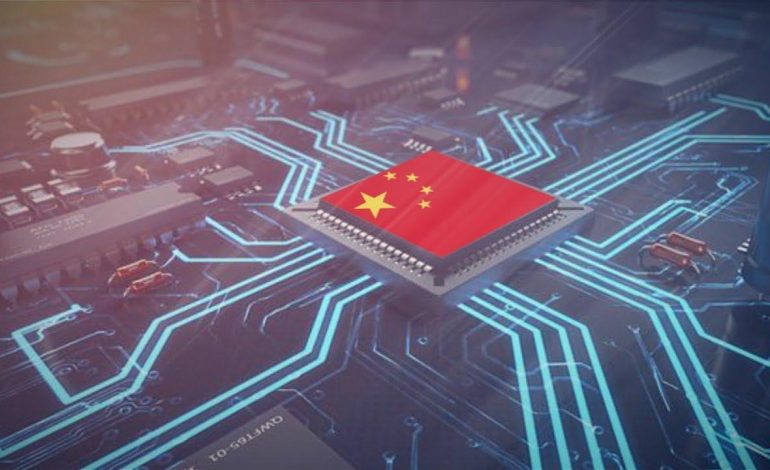RealDID Identity System Expands via National Blockchain Initiative

Introduction
China’s RealDID digital identity system is expanding under a national blockchain initiative aimed at strengthening online authentication, data security, and digital governance. Developed through collaboration between government agencies and leading blockchain firms, RealDID represents a cornerstone of Beijing’s effort to modernize its digital infrastructure while maintaining strong oversight of online activity.
What is RealDID
RealDID, short for Real Decentralized Identity, is a blockchain-based system that enables individuals and organizations to authenticate their identities across platforms using cryptographic credentials. Unlike traditional usernames and passwords, RealDID assigns a unique digital identifier that can be verified without relying on a single centralized database.
The system is designed to give users more control over their personal data while ensuring compliance with China’s cybersecurity and privacy regulations. It provides a secure way to prove identity across services such as banking, e-commerce, healthcare, and government portals.
Expansion under the national initiative
As part of the expansion, RealDID will be integrated into multiple blockchain service networks supported by state agencies and enterprises. These integrations will allow businesses to adopt RealDID as a standard for secure logins and data verification. Pilot programs are already underway in financial services, supply chain management, and cross-border trade platforms.
The national initiative also seeks to build interoperability between RealDID and other blockchain-based services, creating a unified ecosystem of digital trust. By standardizing identity solutions, the government aims to reduce fraud, improve efficiency, and lay the groundwork for broader adoption of digital yuan payments and smart contract applications.
Why identity matters for China’s digital economy
China’s digital economy has grown rapidly, but identity fraud and data breaches remain persistent challenges. RealDID addresses these risks by offering stronger authentication mechanisms and reducing dependence on vulnerable passwords.
For enterprises, RealDID simplifies compliance by ensuring user data is verified through government-approved channels. For individuals, it offers more convenient and secure access to online services, from mobile banking apps to telemedicine platforms.
Policy and regulatory alignment
The expansion of RealDID reflects China’s broader regulatory goals. Authorities have repeatedly stressed the importance of secure digital identities as the foundation for financial stability, e-government, and national security. RealDID provides a mechanism to enforce real-name registration requirements while still aligning with new data privacy laws.
By anchoring RealDID in blockchain technology, regulators also hope to improve transparency and traceability. Every credential issued and verified can be logged on-chain, making it more difficult to manipulate or forge records.
Industry adoption
Financial institutions are among the earliest adopters of RealDID. Banks are testing the system for customer onboarding, loan applications, and cross-border transactions. E-commerce platforms are also exploring its use to verify merchants and reduce fraud.
Healthcare providers see potential in using RealDID for secure patient identification, enabling electronic health records to be shared safely across hospitals. Supply chain companies are interested in applying RealDID to track product origins and ensure compliance with customs regulations.
Benefits and opportunities
The system promises several benefits:
- Security: reduces identity theft and fraud by replacing passwords with cryptographic credentials.
- Efficiency: streamlines authentication across platforms, saving time for both businesses and users.
- Interoperability: creates a shared identity standard across industries, encouraging collaboration.
- Policy compliance: aligns with government requirements for real-name registration and data protection.
As adoption grows, RealDID could also support future applications such as digital yuan wallets, smart contracts for insurance, and automated compliance checks.
Challenges ahead
Despite its promise, RealDID faces hurdles. Widespread adoption will require convincing businesses to replace existing systems with blockchain-based alternatives. Technical challenges around interoperability, scalability, and user experience remain.
Privacy advocates have also raised concerns that government-backed identity systems may give authorities too much control over personal data. While RealDID is designed to enhance user control, its integration with state-led networks raises questions about surveillance and data access.
Global context
China is not alone in pursuing decentralized identity. The European Union, United States, and other countries are also exploring blockchain-based ID systems. However, China’s approach stands out for its scale and speed, as well as its integration with national policy goals such as digital currency and e-government modernization.
If successful, RealDID could set a precedent for how digital identity systems are implemented in large economies. It may also be exported to Belt and Road partner countries as part of China’s push to shape global digital standards.
Conclusion
The expansion of the RealDID identity system under a national blockchain initiative highlights China’s ambition to lead in digital governance infrastructure. By creating a secure, scalable, and government-backed identity solution, Beijing aims to strengthen trust in online services and enable the growth of its digital economy. While challenges around privacy, adoption, and interoperability remain, RealDID represents a bold step toward a unified framework for secure digital identity in the era of blockchain and central bank digital currencies.






